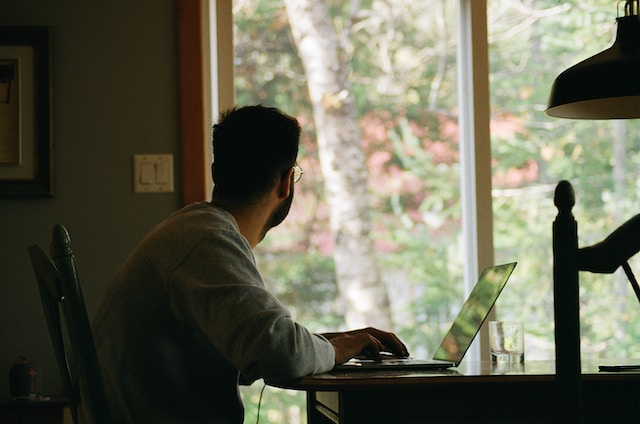Creativity and Play: The Key to Unlocking Your Inner Potential
Sep 30, 2023
Those who play rarely become brittle in the face of stress or lose the healing capacity for laughter.
-Stuart Brown
We don’t stop playing because we grow old; we grow old because we stop playing.
-George Bernard Shaw
The pedestrian traffic on Fifth Avenue rushes by, faces fixed in determination, eyes focused straight ahead. Jaws clenched, shoulders hunched, they march onward to their important jobs and pressing deadlines. The sidewalk cemeteries of New York City, I’ve heard them called. Stress emanates from these busy urbanites like heat from summer sidewalks.
Contrast this to the playground just across the street. Children of all ages run, swing, and spin wildly, their faces alight with joy. Peals of laughter ring out as they play make-believe games of pirates and astronauts. A lively game of tag breaks out spontaneously. For these children, play is their work. They throw their whole selves into it with enthusiasm.
As adults in this productivity-obsessed world, we’ve lost our sense of play. The child inside us who viewed the world with curiosity has been banished. But to heal our trauma, reconnect with our humanity, and unlock our highest potential, we must reclaim our innate playfulness.
The Power of Play
Study after study shows the myriad benefits of play and creativity. Playing reduces stress, boosts the immune system, improves brain function, decreases the risk of depression, and increases empathy.
When we play imagination games, we become more socially adept, better able to understand others. Play puts us into a state of flow—that magical convergence of challenge and skills where we lose track of time. Athletes, artists, and innovators all harness this state of flow to achieve greatness.
Play is the fountain of youth for our brains, keeping them flexible and adaptable. It’s the oil that keeps the gears of creativity turning. As one popular saying goes, “Play is the highest form of research.”
Play opens new neurological pathways, allowing us to make fresh connections and see things from new angles. When we stop playing, our brains start to atrophy, along with our souls.
The Cult of Productivity

Photo by Yasmina H on Unsplash
Yet as a culture, we worship at the altar of productivity. We believe accomplishment comes from constant hustle. Being busy has become a status symbol. The busier we are, the more important we must be. We humblebrag about our packed schedules and sleepless nights grinding away.
But what is lost in this cult of constant productivity? For many, a sense of meaning and fulfillment replaced by burnout and emptiness.
Without time for joy and play, our wells of creativity run dry.
We begin functioning like automatons, trudging through our days with heads down, absorbed in tasks but not really present.
When we’re constantly “on,” always striving, we disconnect from our bodies and inner selves. We live too much in our heads and not enough in our instinctual, embodied wisdom. Physical sensations and emotions get suppressed. Our nervous system sends warning signs, saying, “You need rest!” But we override these messages, mistakenly equating relaxation with laziness.
Many of humanity’s greatest discoveries have occurred in moments of play. Legend says Newton was hit by a falling apple while lazily daydreaming, leading to his theory of gravity. Archimedes had his famous “Eureka!” moment about water displacement while bathing.
The Post-It Note was invented when a 3M scientist played with creating a weak adhesive. Penicillin was discovered when Alexander Fleming noticed mold that had accidentally contaminated his Petri dishes.
Time for open-ended play allows our minds’ subtle, unconscious parts to make connections. While structured focus has its place, creativity is often sparked when we meander unhurriedly without a destination. Those zone-out moments where we gaze out a window or stroll are ripe for epiphanies. When we allow our minds to wander playfully, we grant them the space to invent.
Unlocking Flow through Play

Photo by Quan Nguyen on Unsplash
So how can we rediscover this state of play and flow amidst the demands on our time and energy? It begins by easing up on the gas pedal of productivity and reclaiming time simply for play.
Start by scheduling small play breaks in your day. Take five minutes each hour to doodle, daydream, or do some silly dance moves. Go for a walk and make a game of looking for hidden patterns around you. Pick up that creative hobby you’ve been neglecting.
Play is not wasted time; it recharges your batteries and sparks insights.
Tap into your intrinsic delights. Cook a fun new recipe, sing in the shower, and plant a butterfly garden. Do activities just for the joy of it, not to achieve any goal. Turn chores into play. Challenge yourself to put away dishes creatively, develop a funny dance routine, or sing your heart out while vacuuming.
Laugh often. Humor reduces stress and frees us from negative thought patterns. Host a game night with friends or watch a comedy. See the humor in everyday things.
Limit consuming digital media passively. Instead, actively engage your creativity: write stories, design graphics, or edit videos. Create something, even just for you.
Play is a state of mind, available anytime. You can infuse playfulness into even tedious tasks by being experimental and bringing curiosity. Approach problems playfully, free from rigid thinking. If perfectionism and fear of failure stifle you, talk to your inner child with gentleness.
Conclusion
As Mr. Rogers said, “Play gives children a chance to practice what they are learning.” What if we envision life as one big playground for practicing how to live skillfully?
Instead of drudging through our days, we would skip freely between activities, approaching everything with lightness. We’d savor our time, crafting lives filled with awe and meaning.
The joyful, creative essence of play is our birthright. But for our playful spirit to bloom freely, we must tend to the inner garden of our soul. Play helps us heal wounds, dissipate anger, and dissolve isolation. It connects us to others through laughter, fun, and merriment.
Play is the wise teacher within, reminding us not to take ourselves too seriously. It whispers gently, “Come dance with me.” We reconnect with the vital life force that keeps our spirits vibrant when we answer that call.
The pedestrian cemeteries of New York may march to the beat of productivity. But we can march to the beat of our drum, playing as we go. Our playful inner child still resides, ready to come out and experience the world with fresh eyes. It’s time we let that inner spirit play freely once more.
Featured photo by Jed Villejo on Unsplash
Sign up for our Newsletter
Keep up with our latest offerings and events. Stay connected with community.
No spam. Ever.



